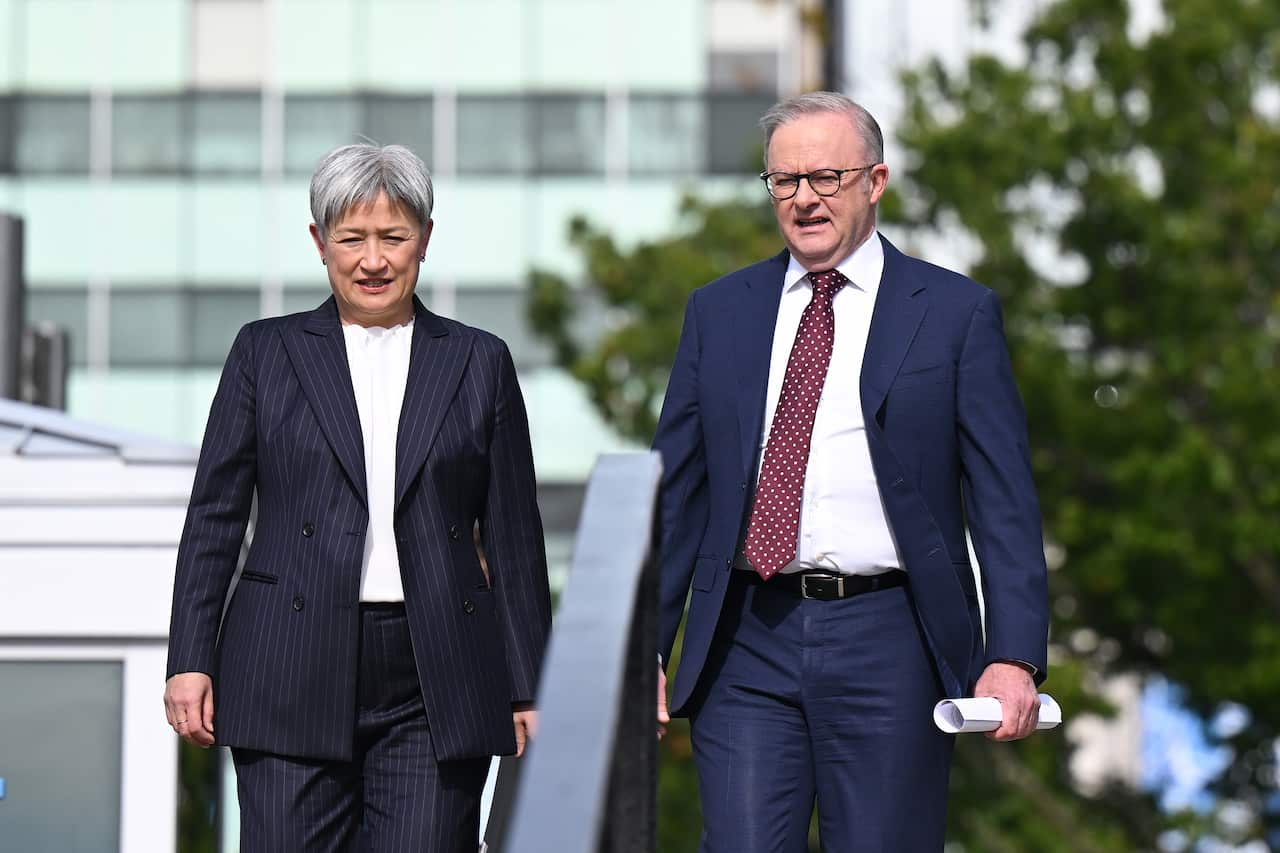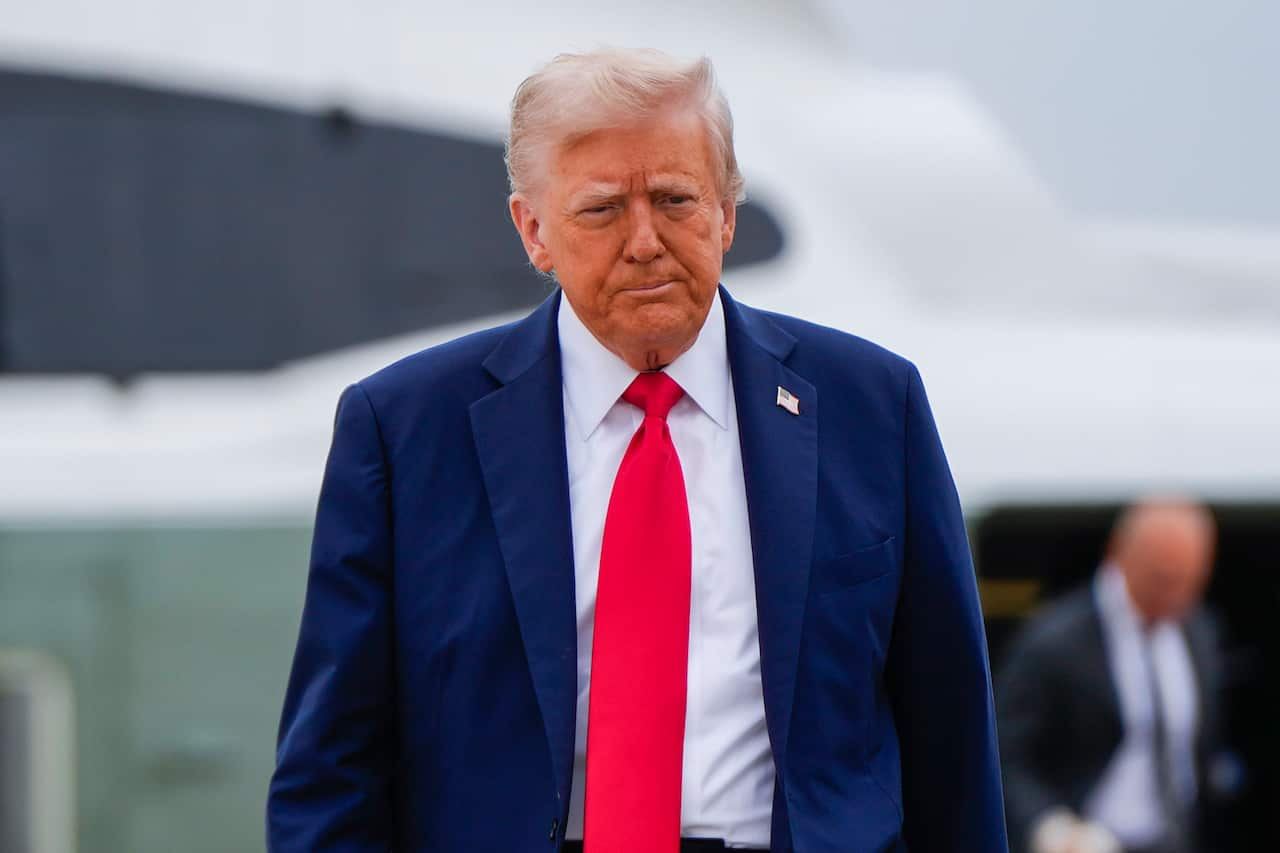After an entire day spent in the air, the Australian prime minister found himself amongst the yellow taxis and glittering towers of New York City.
Like so many others who make the pilgrimage to the Big Apple, he's arrived to make his mark, wasting no time in starting the process of mapping out his foreign policy agenda.
Anthony Albanese's first media event was to announce that Australia would break with the United States and eschew domestic bipartisanship on the Middle East and officially recognise the state of Palestine.
It comes in the wake of increasingly robust condemnation from Canberra over the Netanyahu government's deadly offensive in Gaza, as well as marches through the Australian streets calling for action, and assurances from the Palestinian Authority about its ability to excise Hamas from power.
Australia's decision to recognise Palestine comes in tandem with France, the UK and Canada.
Albanese expects up to 10 nations to join the vast majority of countries in confirming recognition during this UN General Assembly leaders' week.
It's a joint effort to press for peace and collectively argue that statehood can be a mechanism to get to a two-state solution rather than coming afterwards.
There is no clear timeline for when Palestinian Authority leader Mahmoud Abbas is supposed to achieve the demilitarisation of the PA or hold elections, or ensure free and fair polls, while stipulating Hamas must be excluded.
Israel is furious and has threatened retaliatory action.
Locking down a face-to-face with Trump elusive
Recognition is not supported by US President Donald Trump, who's never been shy in expressing his disdain about the effectiveness of the United Nations more broadly either.
Trump appeared to confirm, during a heated exchange over his personal finances with ABC journalist John Lyons last week, that he was preparing to hold his first face-to-face meeting with Albanese during this visit.
But locking down a time and date for talks with the leader of Australia's closest security ally appears to be endlessly elusive.
No such meeting has been confirmed to the Australian press.
Albanese has rejected suggestions that the statehood move has affected his chances of meeting with Trump.
But it is a strange possibility to consider that Albanese might pass four days in New York, including attending events hosted by the president, and the pair may not sit down for a private chat.
In recent times, it has been an expectation that making the trip to North America would come with a bilateral meeting built in, particularly given the tumult in the Indo-Pacific and the growing US military presence Australia is supporting.
Despite the government's overwhelming election victory and parliamentary majority, Albanese is aware that voters are measuring Labor's ability to guide the nation through one of the most turbulent and dangerous periods of recent global history.
Taking the podium to deliver a leader's address at the UN General Assembly in New York later this week is a major diplomatic moment for Albanese.
It's an opportunity he relishes and one he's been looking towards for many months as a defining feature of his time in the top job.
During Albanese's first term as prime minister, Foreign Minister Penny Wong was dispatched to represent Australia to mark this annual gathering.
This year, they are both in town, as the city prepares to be full to bursting with international leaders and their political and journalistic orbits for the week of events.

In the days leading up to the trip, former Biden administration deputy secretary of state and Indo-Pacific specialist Kurt Campbell was in Australia and spent time in consultations with the government discussing the best way to approach a meeting with the president.
Quad concerns
With fears mounting about the fractures in the relationship between Trump and the powerful Indian leader Narendra Modi, there is concern the Quad grouping — which includes the US, Australia, India and Japan — won't have a leader-level meeting this year.
It's not just the absence of the meeting that's worrying analysts; it's the symbolism of whether the grouping is still committed to joint action and solidarity.
Campbell told Australia's National Press Club that he was hopeful that Albanese could use his position to bring Trump and Modi back to the Quad table.
Albanese has always believed in the power and importance of this grouping, underscored by his decision to fly to Quad talks in Tokyo within days of being elected in 2022.
Australia has been focusing a large portion of its diplomatic and military efforts in the Indo-Pacific region, moving to strengthen bonds with Pacific Leaders and keep China close enough to smooth relations with the nation's most lucrative trading partner, all the while bolstering efforts to form a military buffer against the People's Liberation Army.

Now the agenda will expand, one of the first items on the books in the US is a meet and greet with the Jordanian King Abdullah II, a key representative of the Arab League.
On the way home, Albanese will be in the United Arab Emirates to make inroads on the free trade agreement and hold talks with President Sheikh Mohammed bin Zayed Al Nahyan.,
He'll also be hoping that after announcing Australia's long-awaited 2035 climate target at the end of last week, committing to cut emissions by at least 62 per cent on 2005 levels, there is momentum for Australia and the Pacific to push ahead with plans to hold COP31 in Adelaide.
Türkiye is still vying to hold the event. Australia will also be leading international efforts to stop social media harm to young people, with events this week to promote the plans to cut children off from online danger.
As Albanese came off the plane in New York to begin this four-day foray he was asked about what he thought would be achieved this week.
"What we want to see is increased peace and security and stability around the world," he said.
"Australia plays an important role. We are a trusted partner, an ally."
Just how important and influential Australia's voice is on this crowded and deeply combative world stage is about to be tested.
For the latest from SBS News, download our app and subscribe to our newsletter.

